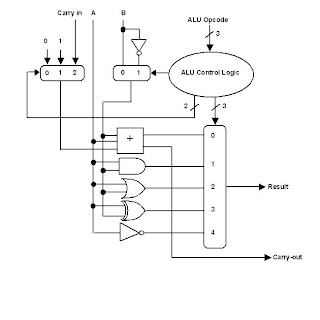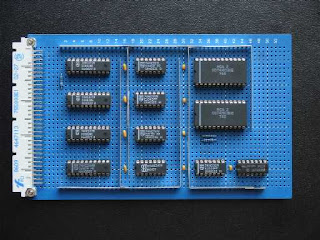History of C++
During the 60s, while computers were still in an early stage of development, many new programming languages appeared. Among them, ALGOL 60, was developed as an alternative to FORTRAN but taking from it some concepts of structured programming which would later inspire most procedural languages, such as CPL and its succesors (like C++). ALGOL 68 also directly influenced the development of data types in C. Nevertheless ALGOL was an non-specific language and its abstraction made it impractical to solve most commercial tasks.
In 1963 the CPL (Combined Programming language) appeared with the idea of being more specific for concrete programming tasks of that time than ALGOL or FORTRAN. Nevertheless this same specificity made it a big language and, therefore, difficult to learn and implement.
In 1967, Martin Richards developed the BCPL (Basic Combined Programming Language), that signified a simplification of CPL but kept most important features the language offered. Although it too was an abstract and somewhat large language.
In 1970, Ken Thompson, immersed in the development of UNIX at Bell Labs, created the B language. It was a port of BCPL for a specific machine and system (DEC PDP-7 and UNIX), and was adapted to his particular taste and necessities. The final result was an even greater simplification of CPL, although dependent on the system. It had great limitations, like it did not compile to executable code but threaded-code, which generates slower code in execution, and therefore was inadequate for the development of an operating system. Therefore, from 1971, Dennis Ritchie, from the Bell Labs team, began the development of a B compiler which, among other things, was able to generate executable code directly. This "New B", finally called C, introduced in addition, some other new concepts to the language like data types (char).
In 1973, Dennis Ritchie, had developed the basis of C. The inclusion of types, its handling, as well as the improvement of arrays and pointers, along with the later demonstrated capacity of portability without becoming a high-level language, contributed to the expansion of the C language. It was established with the book "The C Programming Language" by Brian Kernighan and Dennis Ritchie, known as the White Book, and that served as de facto standard until the publication of formal ANSI standard (ANSI X3J11 committee) in 1989.
In 1980, Bjarne Stroustrup, from Bell labs, began the development of the C++ language, that would receive formally this name at the end of 1983, when its first manual was going to be published. In October 1985, the first commercial release of the language appeared as well as the first edition of the book "The C++ Programming Language" by Bjarne Stroustrup.
During the 80s, the C++ language was being refined until it became a language with its own personality. All that with very few losses of compatibility with the code with C, and without resigning to its most important characteristics. In fact, the ANSI standard for the C language published in 1989 took good part of the contributions of C++ to structured programming.
From 1990 on, ANSI committee X3J16 began the development of a specific standard for C++. In the period elapsed until the publication of the standard in 1998, C++ lived a great expansion in its use and today is the preferred language to develop professional applications on all platforms.
C++ has been evolving, and a new version of the standard, c++0x, is being developed to be published soon, with several new features.
From: www.cplusplus.com
In 1963 the CPL (Combined Programming language) appeared with the idea of being more specific for concrete programming tasks of that time than ALGOL or FORTRAN. Nevertheless this same specificity made it a big language and, therefore, difficult to learn and implement.
In 1967, Martin Richards developed the BCPL (Basic Combined Programming Language), that signified a simplification of CPL but kept most important features the language offered. Although it too was an abstract and somewhat large language.
In 1970, Ken Thompson, immersed in the development of UNIX at Bell Labs, created the B language. It was a port of BCPL for a specific machine and system (DEC PDP-7 and UNIX), and was adapted to his particular taste and necessities. The final result was an even greater simplification of CPL, although dependent on the system. It had great limitations, like it did not compile to executable code but threaded-code, which generates slower code in execution, and therefore was inadequate for the development of an operating system. Therefore, from 1971, Dennis Ritchie, from the Bell Labs team, began the development of a B compiler which, among other things, was able to generate executable code directly. This "New B", finally called C, introduced in addition, some other new concepts to the language like data types (char).
In 1973, Dennis Ritchie, had developed the basis of C. The inclusion of types, its handling, as well as the improvement of arrays and pointers, along with the later demonstrated capacity of portability without becoming a high-level language, contributed to the expansion of the C language. It was established with the book "The C Programming Language" by Brian Kernighan and Dennis Ritchie, known as the White Book, and that served as de facto standard until the publication of formal ANSI standard (ANSI X3J11 committee) in 1989.
In 1980, Bjarne Stroustrup, from Bell labs, began the development of the C++ language, that would receive formally this name at the end of 1983, when its first manual was going to be published. In October 1985, the first commercial release of the language appeared as well as the first edition of the book "The C++ Programming Language" by Bjarne Stroustrup.
During the 80s, the C++ language was being refined until it became a language with its own personality. All that with very few losses of compatibility with the code with C, and without resigning to its most important characteristics. In fact, the ANSI standard for the C language published in 1989 took good part of the contributions of C++ to structured programming.
From 1990 on, ANSI committee X3J16 began the development of a specific standard for C++. In the period elapsed until the publication of the standard in 1998, C++ lived a great expansion in its use and today is the preferred language to develop professional applications on all platforms.
C++ has been evolving, and a new version of the standard, c++0x, is being developed to be published soon, with several new features.
From: www.cplusplus.com








